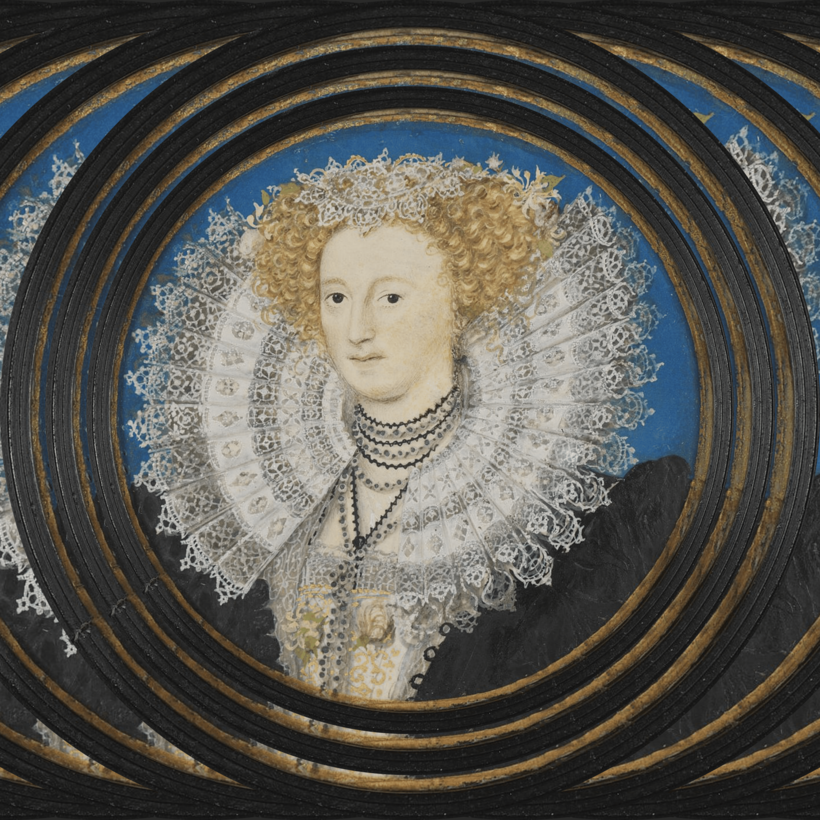When I began working on my book Shakespeare’s Sisters: How Women Wrote the Renaissance, my aim was to bring attention to a group of Renaissance women writers who defied the conditions that Virginia Woolf described in A Room of One’s Own: “Any woman born with a great gift in the sixteenth century would certainly have gone crazed, shot herself, or ended her days in some lonely cottage outside the village, half witch, half wizard, feared and mocked at.”
It turns out Woolf was wrong. As I eventually learned, there were some women writers who managed to publish their own works and live reasonably healthy and happy lives during the Renaissance. But they were long out of print and forgotten by the time Woolf wrote A Room of One’s Own. She couldn’t have known anything about Shakespeare’s female contemporaries because no one had bothered to remember them—or so I thought.
A few years ago, I discovered that the early 1600s diaries of Anne Clifford, Countess of Dorset, Montgomery, and Pembroke, had been published in 1923 by Woolf’s lover Vita Sackville-West. She was a direct descendant of Clifford’s first husband, Richard Sackville, Earl of Dorset, and grew up at Knole House, where Clifford lived from 1609 to 1624, for the 15 years of her marriage. Sackville-West had come upon Clifford’s diaries in a copy that had survived in the family. (The originals are lost.)
In her introduction, Sackville-West praises Clifford’s “sharp, vigorous mind, that had, so humanly, its sentimental facet on the opposite side to all its severity,” and applauded the woman who kept up her autobiographical writing “with the same scrupulous care up to the day before her death,” in 1676, at the age of 86.
Woolf actually knew all about Clifford. In her 1931 essay “Donne After Three Centuries,” Woolf insults Clifford as “practical and little educated,” a woman who “read good English books as naturally as she ate good beef and mutton,” but her writing—“a diary here and there”—certainly didn’t deserve our attention. To Woolf’s high-modernist sensibility and interest in literary experimentation, Clifford’s fascinating project of writing diaries, memoirs, and personal histories, didn’t count for much. But “little educated” is an odd way to characterize a woman who loved nothing more than to plunge into Montaigne’s Essays or a volume of Turkish history, and whom Donne himself described as able to “discourse of all things, from predestination to slea-silk.”
To Virginia Woolf’s high-modernist sensibility and interest in literary experimentation, Anne Clifford’s fascinating project didn’t count for much.
In that essay, Woolf also brings up another “Lady Pembroke,” referring to Mary Sidney, Countess of Pembroke, whose son Philip Herbert became Clifford’s second husband. “It is said that both Lady Pembroke and Lady Bedford were poets of merit,” Woolf writes, but “they did not dare to put their names to what they wrote, and it has vanished.” She was right about Lady Bedford, it seems, but Sidney did publish some of her work—with her name proudly displayed on the title page—and shared the rest of it in manuscript form among her extensive literary circles.
Donne was a great admirer, writing a whole poem in praise of Sidney’s magnificent translation of the Psalms. Started by her better-known brother, Sir Philip Sidney, she took over and completed the project after his death. Philip translated the first 43 Psalms, while Mary translated the remaining 107.
Sidney and Clifford knew each other well, and both were also named in the dedication of Aemilia Lanyer’s Salve Deus Rex Judaeorum, a pathbreaking book of poetry published in 1611, the year of the King James Bible. In that book, which was shockingly addressed only to female readers, Lanyer argues for nothing less than the equality of the sexes. Woolf didn’t know about Lanyer, the daughter of an Italian-immigrant musician, at all.
My book focuses on these three women—Clifford, Sidney, and Lanyer—as well as a fourth, Elizabeth Carey, who was the first Englishwoman to publish an original play in English. That work, The Tragedy of Mariam, written a few years after Shakespeare’s Othello, empowers its female heroine to fight back. It’s both exhilarating to see how these women managed to make their voices heard some 400 years ago, and frustrating to think how much they might have inspired centuries of readers, if only we’d all known where to look.
Ramie Targoff is the Jehuda Reinharz Professor of the Humanities and co-chair of Italian Studies at Brandeis University. She’s the author of several books, including Posthumous Love: Eros and the Afterlife in Renaissance England and John Donne: Body and Soul

